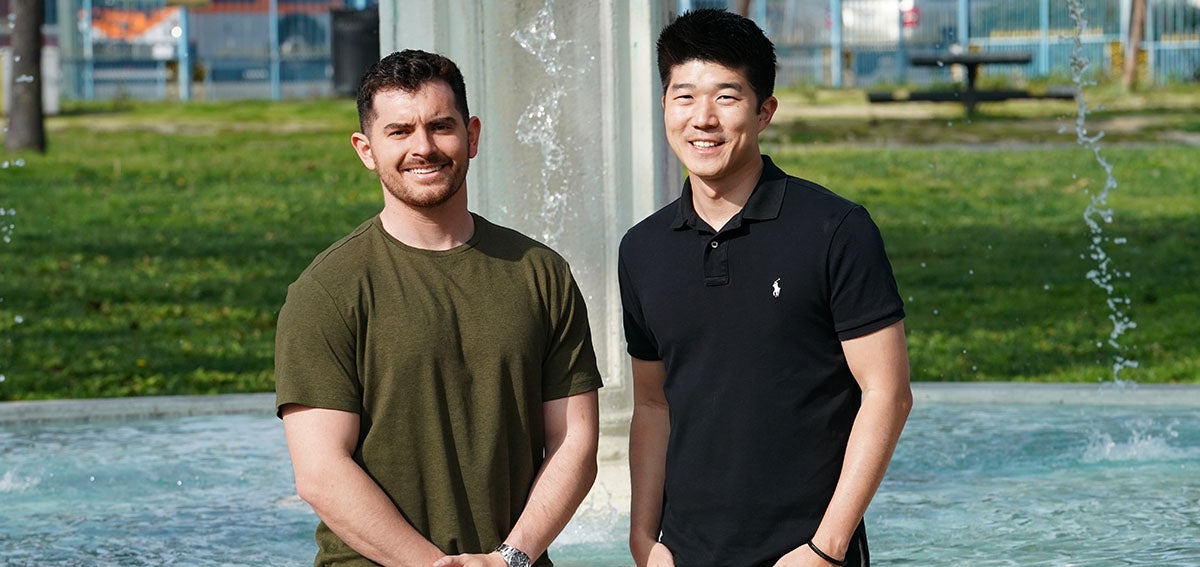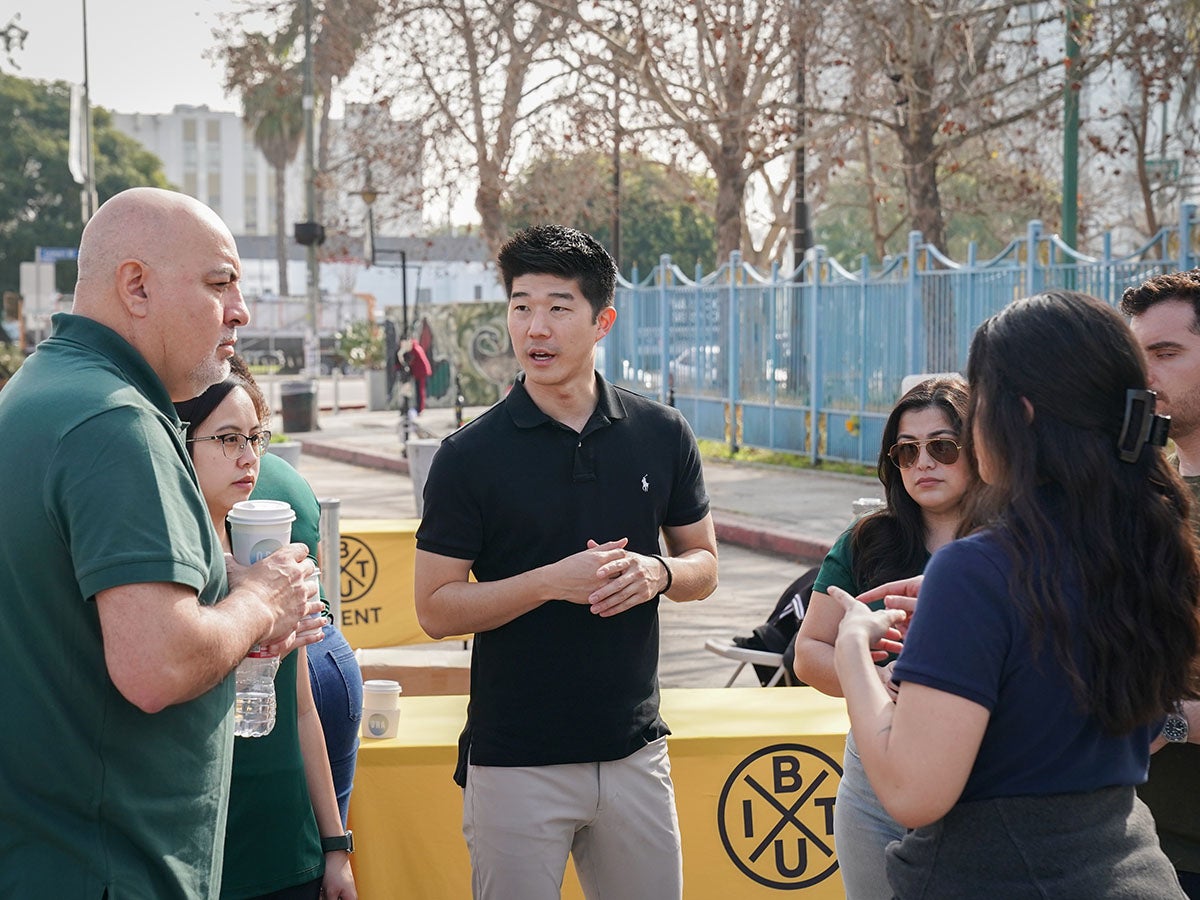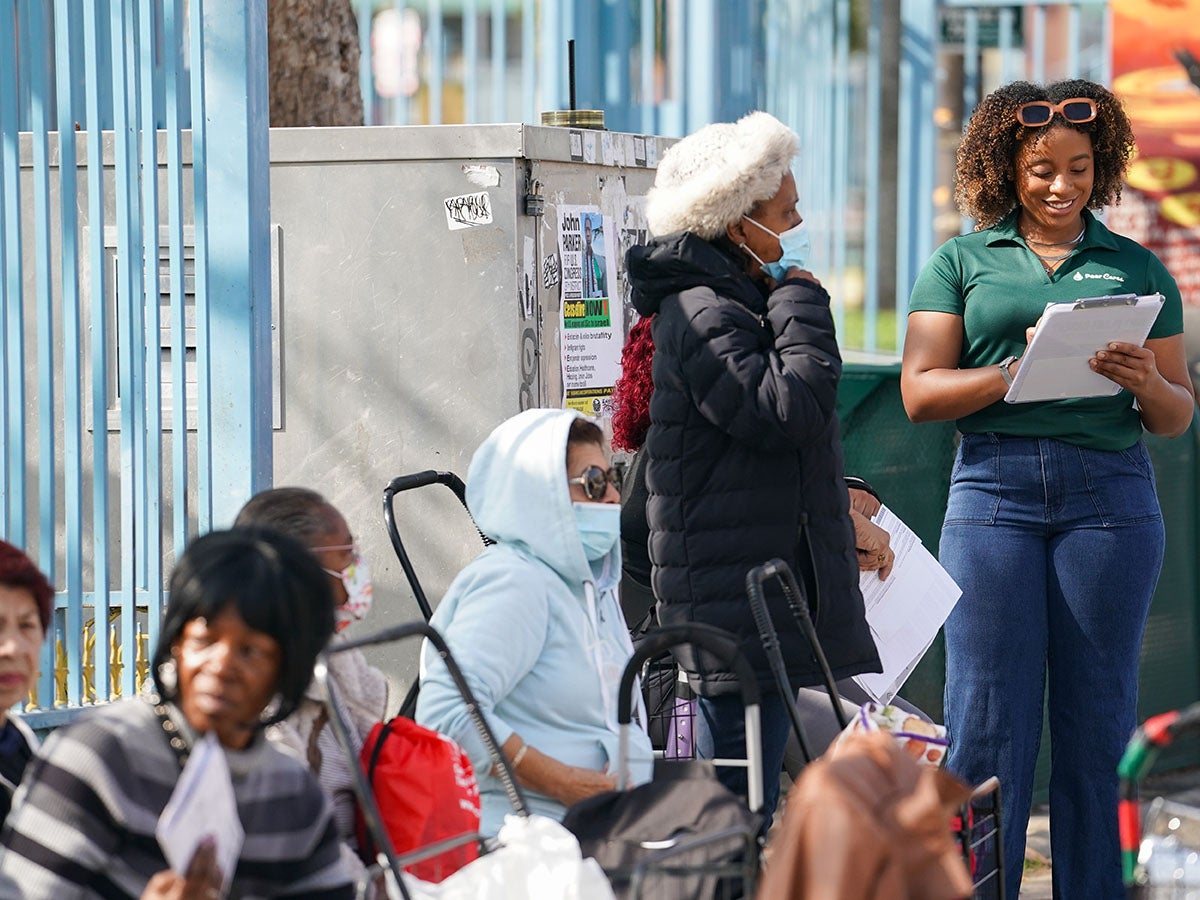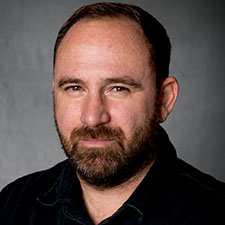|
Getting your Trinity Audio player ready…
|

On paper, the Medi-Cal health plan enrollee had an established asthma plan and a health care specialty provider. But David Mamae, one of the community health worker program leads with the digital health start-up Pear Suite, knows that the words in medical charts rarely match a client’s complex reality. That’s why Pear Suite developed a care navigation platform to aid community health workers, promotores, peer specialists, community health representatives, and navigators in crafting person-centered goals and action plans to tackle social determinants of health.
In addition to its online platform, Pear Suite’s team of 25 skilled community health workers offers customers culturally sensitive, person-centered support, both in person and virtually through phone, video, and text. The company believes its digital tools and tech-enabled team will strengthen California’s care navigator workforce, enhancing their capabilities to deliver whole-person, integrated health services to people of color and other communities that need greater access to care — a top priority of the state’s Medi-Cal initiatives.
Mamae and his team used the Pear Suite platform in 2023 for an asthma quality improvement project for Health Net, a Medi-Cal managed care plan that operates in Kern, Los Angeles, Sacramento, San Diego, San Joaquin, Stanislaus, and Tulare Counties. Their task was educating over 100 California asthma patients across Los Angeles County about available resources, helping them overcome barriers to care, and facilitating connections to specialty providers.
Mamae realized that the primary concerns of the asthmatic enrollee with the established plan were her need to obtain stable housing and her strong preference to switch back to a previous asthma specialist who was familiar with her family. By tracking progress and collecting data, the team was able to systematically advocate for the health plan member, connect her to new housing, and help her return to the care of her previous asthma specialist.
Care Navigation: A Key Asset in CalAIM
Community health workers have the demonstrated ability to gain clients’ trust and connect them to needed care and services, including the right type of doctor; transportation and child care; help understanding health insurance; behavioral health services; and housing, food, and other social assistance.
Under the CalAIM initiative (California Advancing and Innovating Medi-Cal), nonclinical, community-based organizations are being reimbursed to provide whole-person, integrated health services. These providers can face significant challenges collecting data and managing the billing processes necessary to be compensated by Medi-Cal.
Pear Suite CEO and co-founder Colby Takeda said the company aims to use its technology to “empower community health workers” and to function as a “one-stop-shop care navigation and billing platform that enables organizations to bill Medi-Cal for community health work.”

Recognizing the need to help the community health workforce deliver health care services and generate reimbursements, the California Health Care Foundation invested $250,000 to advance Pear Suite’s care navigation and billing platform.
Health care experts say community health workers are crucial because many come from the communities they serve and build trust with clients by connecting with them culturally or through life experiences, said Janet Boachie, a CHCF health equity fellow. Yet their value and impact have typically been overlooked, she said.
“With CalAIM, there will be an increase in leveraging community health workers, and supporting them in their work will be critical,” Boachie said. “That’s where Pear Suite comes in and really shines. They bring a community-centered approach to technology innovation in Medi-Cal.”
Empowering Care Navigators with Technology
Pear Suite was founded in 2021 by Takeda, a former community health worker instructor, and engineer Nick Lockett, who previously worked at Microsoft and SoundCommerce, a retail management software company.
The idea originated from the significant need to support older adults who were struggling at home during the COVID-19 pandemic, Takeda said. The founders recruited student volunteers to reach out to older people by telephone. The most productive calls were those in which the callers could provide health education and advice on ways for seniors to stay physically and socially active.
Looking past the pandemic, the founders decided to integrate Pear Suite’s services with the wider health care system. They began gathering data on the value community health workers could deliver, such as increased annual wellness visits by health plan members and reduced emergency room visits.
As Takeda worked to quantify the value of community health workers and care navigation, he noticed how this class of worker had been technologically left behind and that some struggled to adopt a cohesive workflow management. They often relied on paper notes, Google Forms, spreadsheets, and sticky notes for documentation, he said.
Ask a community health worker, “‘How do you know who to call on Monday when you show up to work?,’ and the typical response is, ‘Oh, it’s in my notes somewhere,’ or ‘I just know it in my head,’” Takeda said.
The founders of Pear Suite saw an opportunity to use technology to make it easier and simpler for community health workers to use technology to streamline their workflow without compromising trusting relationships they have built.

Takeda said he makes sure that the platform emphasizes a personal touch while using technology to guide, support, and empower community health workers. The platform helps manage caseloads, track data, and provide tools for organizations to monitor their clients.
Mamae said the platform’s role is to set goals and formulate actionable steps that the client agrees with in real time.
“Every time we have a call, I can refer back to those goals to see our progress,” Mamae said. “It’s all readily available on the platform, and it guides our conversation seamlessly.”
If a client doesn’t speak English, Pear Suite can transfer the call immediately to a qualified translator instead of taking hours, days, or weeks to find a community health worker who speaks the language, Mamae said.
Pear Suite uses tech solutions to enable health care providers and community-based organizations to be reimbursed for community health work.
Today, Pear Suite software is used by more than 30 California organizations (and more in other states) in conjunction with a consortium of agencies that employ community health workers. Pear Suite generates revenue by charging health plans a monthly subscription fee per user or by taking a small percentage-based fee from the reimbursement stream.
Enabling Reimbursement for a Community Organization
The start of the CalAIM initiative was challenging for Krysta Salas, cofounder and executive director of nonprofit T’ena Health, an organization dedicated to providing free health services to low-income communities in South Los Angeles. The group needed to implement a data-driven approach for 12 volunteer health care navigators (health care educators who assist clients in accessing services), while struggling with fragmented data scattered across spreadsheets and tracking platforms.
Impressed by Pear Suite’s potential to improve T’ena Health’s navigation efforts, Salas and cofounder Jemal Hussein, the organization’s board executive chair, signed up with Takeda in September 2023.
“Instead of dealing with six different spreadsheets, trackers, and phone call systems, now everything can be handled in one place on Pear Suite, making our workflow more efficient and sustainable,” Salas said.
That allows T’ena Health volunteer navigators to devote more time to one-on-one interactions with community members, she said. Hussein said he is excited about the potential of using Pear Suite to enhance revenue streams through Medi-Cal reimbursement.
“As a small nonprofit, securing funding is a huge hurdle in sustaining our day-to-day operations,” Hussein said. “We appreciate the aspect of Pear Suite that enables us to receive reimbursement for the valuable work we do.”
T’ena Health’s use of the Pear Suite system equips its volunteer navigators with productivity software that allows them to become more efficient while enabling the organization to be paid for their work. This in turn may allow T’ena Health to pay navigators in the future without disrupting its commitment to providing free health care services, Salas said.
“It is just incredible the way that it all kind of just comes together and works out for everyone,” Salas said.
Authors & Contributors

Brian Rinker
Brian Rinker is a freelance writer and journalist. He covers digital health, public health, child welfare, start-ups, and venture capital. His work has been published by Kaiser Health News, Health Affairs, The Atlantic, Men’s Health, and San Francisco Business Times. Brian received master’s degrees in journalism and public health from UC Berkeley.

Harrison Hill
Harrison Hill is a documentary photographer and filmmaker based in Los Angeles, California. His work focuses on social justice issues centered around communities of color in the US.



